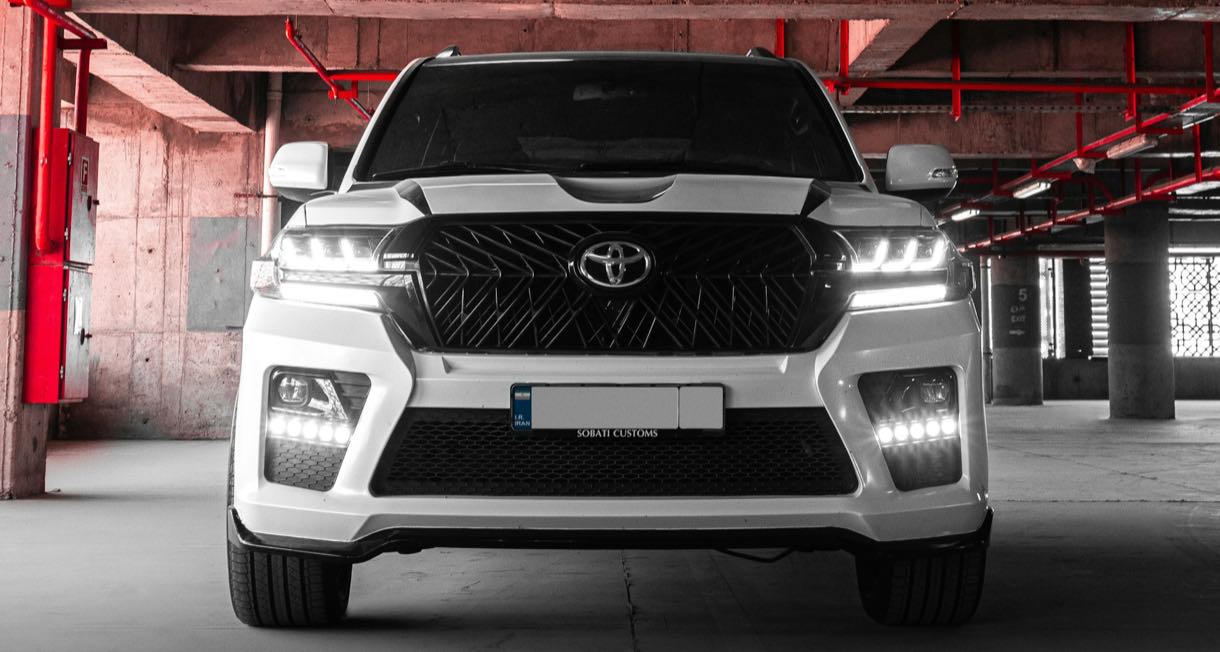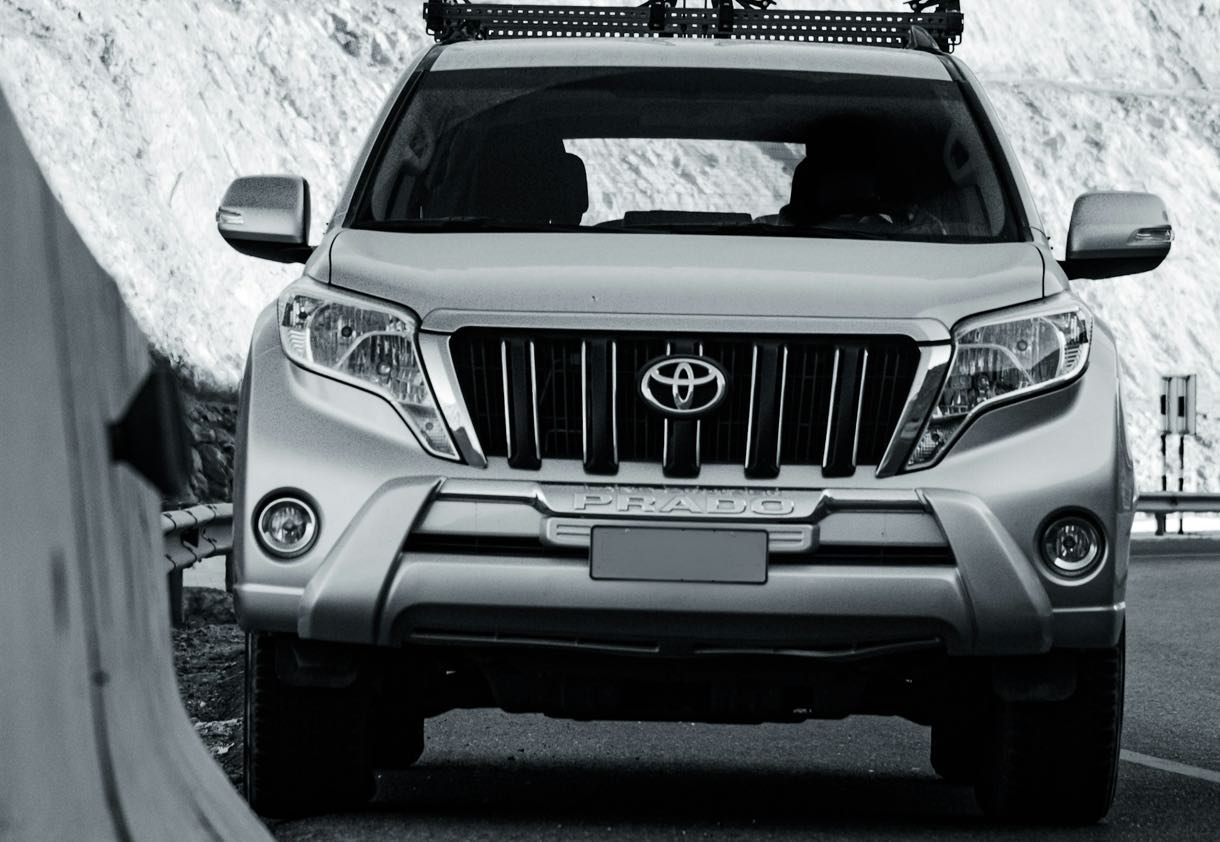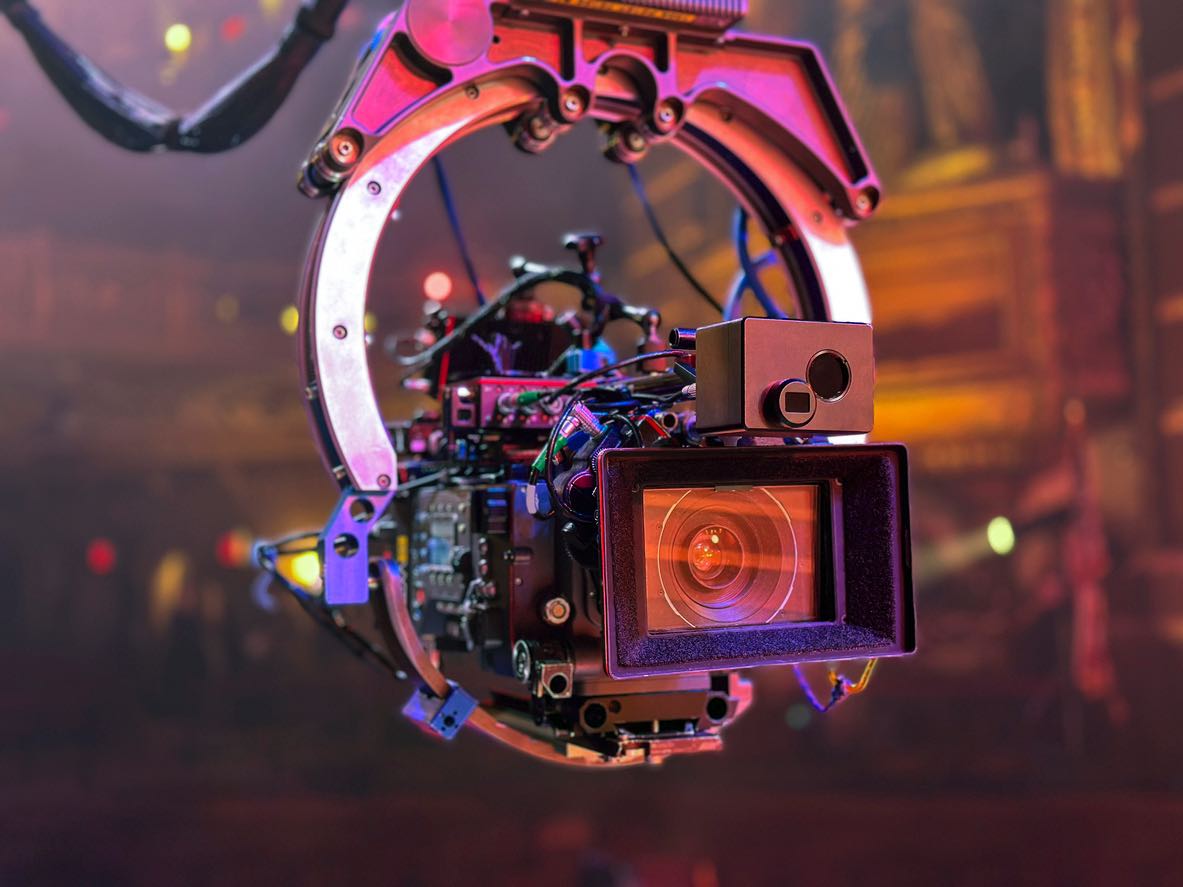In the realm of tough off-road vehicles, the Toyota LandCruiser 70 Series has stood as a model of strength and endurance for almost 40 years. This tradition, which is held in high regard by both off-road explorers and auto fans, is about to embark on an exciting new chapter. With its most recent announcement, Toyota Australia has marked a major progression as well as the continuance of this legendary line. With the introduction of the four-cylinder turbo-diesel version, the LandCruiser enters a new era that seamlessly blends cutting-edge innovation with its illustrious past. This significant action raises important questions regarding the future of the V8-powered model, especially in light of evolving customer tastes and environmental regulations. The arrival of the more fuel-efficient four-cylinder variant might alter what it means to drive an off-road icon like the LandCruiser in the United States, as the automotive industry shifts more and more toward efficiency and sustainability. This shift, which strikes a balance between innovation and heritage, puts the LandCruiser 70 Series on the verge of a big change, capturing the attention of both industry watchers and aficionados.

The 4.5-liter V8 turbo-diesel engine of the Toyota LandCruiser has been a symbol of strong power and unwavering reliability for many years, earning it a distinguished place in the automotive industry. Its status symbol reputation is well-established among luxury car owners and off-road enthusiasts alike, especially in the US where size and power are frequently used to determine an automobile’s desirability. Still, the terrain is changing. Toyota has decided to halt new orders for the V8 model due to growing demand and longer waitlists. This decision reflects Toyota’s dedication to fulfilling changing market demands while upholding their recognized quality standards. This stop marks a significant turning point in the LandCruiser’s illustrious history and goes beyond simple logistical consideration. We examine the V8 model’s present situation in the US market as well as its enduring attraction and the effects of this change on enthusiasts and potential customers. The V8 LandCruiser is more than simply a car; it’s a heritage on wheels that is currently balancing innovation and tradition.
The Four-Cylinder Turbo-Diesel Variant is Redefining Efficiency and Performance
The introduction of the HiLux ute’s noteworthy new 2.8-liter four-cylinder turbo-diesel engine marks a significant change in the Toyota LandCruiser 70 Series’ performance and economy philosophy. This engine is not only evidence of Toyota’s dedication to environmentally friendly driving, but it also shows how automotive technology is developing. We go into great detail about the technological improvements this four-cylinder engine offers in this section, especially its improved fuel efficiency and lower emissions. The classic V8 model, which has long been praised for its raw strength and power, is very different from these features. But the four-cylinder model is a big step ahead, providing a greener choice without sacrificing the strong performance that fans of LandCruiser have come to anticipate. As we examine the details, we’ll see how this engine strikes an amazing balance between power and sustainability, making it a desirable option for both ardent supporters and first-time purchasers in the US market who value superior vehicle performance and environmental consciousness.

Consumer perceptions and market trends are key factors in determining the popularity and sales of vehicles in the dynamic automotive industry. Sean Hanley of Toyota notes that customers have a psychological barrier when it comes to choice, especially when it comes to the LandCruiser 70 Series’s modern four-cylinder variation vs the classic V8. This psychological bond with the V8 is rooted in more than just sheer power; it’s also connected to a history of dependability, toughness, and the feeling of operating a “genuine” off-road vehicle. However, there is a slow but discernible shift in customer preferences as environmental concerns increase and fuel efficiency becomes a more important consideration in buying decisions.
- Fuel Economy: Consumer preference is shifting toward car models that offer higher mileage due to the growing expense of gasoline and the need for more fuel-efficient automobiles. Customers who are eager to lower their fuel costs and carbon impact are likely to be drawn to the LandCruiser, a four-cylinder turbo-diesel vehicle.
- Environmental Concerns: As environmental sustainability and climate change gain prominence, public awareness of car emissions is growing. Customers may choose for this option because of the newer, more environmentally friendly four-cylinder engine, which is in line with the rising environmental concern.
- Performance Expectations: Although the V8 has always been linked to better performance, developments in automotive technology are casting doubt on this idea. The power, efficiency, and dependability of contemporary four-cylinder engines are balanced to meet the evolving performance demands of modern consumers.
We go into further detail on how these variables are affecting the market in the following section. The shift from being a V8 aficionado to preferring more contemporary, efficient engines is consistent with larger developments in the automotive sector. More and more fuel-efficient and ecologically friendly cars are becoming increasingly popular in the US, a country that has historically preferred big, powerful engines. This change is a reaction to real worries about gas prices and the environment, not merely a question of personal preference. With its claims of reduced emissions and improved fuel efficiency, the LandCruiser’s four-cylinder turbo-diesel version is a glaring example of Toyota’s reaction to these changing market conditions.
- Market Trends: Vehicles that strike a balance between power and efficiency are becoming increasingly popular in the US car industry. Consumer demand is not the sole factor driving this trend; tighter emissions regulations and an increasing focus on sustainable practices are also contributing factors.
- Changing Consumer Preferences: The objectives of drivers are clearly changing as new generations enter the market. The car industry is undergoing a transformation as younger customers prioritize sustainability and economy above old performance measurements.
Ultimately, changing customer attitudes and industry developments are making it possible for the four-cylinder version of the LandCruiser 70 Series to overtake the V8 engine, which is still associated with strength and longevity. This trend is indicative of larger shifts in the automobile sector, as customers place a growing value on performance, efficiency, and environmental concerns.

Environmental laws and strict emission rules are having a growing impact on the car industry. These variables influence not just the internal technology but also the methods employed by manufacturers and the preferences of their customers. Stricter pollution regulations in the US have a significant impact on how long-lasting conventional powertrains, such as the V8 engine in the Toyota LandCruiser 70 Series, are. We explore the ways in which these changing requirements are affecting Toyota’s strategy and how they may affect the V8 and the new four-cylinder turbo-diesel models in the US market going forward.
- Impact of Emission Regulations on V8 Engines: The classic V8 engine, renowned for its strength and longevity, confronts formidable obstacles due to stricter pollution regulations. Manufacturers are being compelled by these laws to innovate and create engines that are not only more potent but also cleaner and more efficient. The V8’s capacity to adjust to these changing environmental regulations will be a major factor in determining its future in the US market.
- Four-Cylinder Turbo-Diesel is a Compliant Alternative: The LandCruiser 70 Series’ new four-cylinder turbo-diesel engine, on the other hand, seems to be a greener choice. Because this engine variation is built to meet or even surpass existing emission norms, it will not only comply with future rules but will also appeal to consumers who care about the environment.
Plus, the changing regulatory landscape presents opportunities for automotive innovation in addition to challenges. Toyota is well-positioned to take advantage of the tightening emissions regulations by launching more modern, cleaner, and fuel-efficient engines. This approach is demonstrated by the launch of the four-cylinder turbo-diesel version, which provides an idea of what automobile powertrains may look like in the future. This innovative strategy not only complies with legal requirements but also meets the needs of an increasing number of customers who value performance and environmental sustainability.
- Adapting to Consumer Trends and Environmental Goals: Toyota’s approach in this case demonstrates a deep awareness of environmental goals and market trends. Toyota is putting itself in a position to satisfy a wide range of customer requests by striking a balance between the allure of the V8 and the effectiveness of the four-cylinder turbo-diesel. The company’s dedication to innovation and environmental sustainability is highlighted by this strategy.
- Future-Proofing with Advanced Technologies: Toyota has an additional chance to demonstrate its leadership in cutting-edge automotive technology with the move towards more environmentally friendly powertrains. Toyota is making investments in cleaner, more efficient engines to meet regulatory requirements as well as to future-proof its array of vehicles against changes in the market and prospective environmental norms.
In the automobile industry, Toyota is unusual due to its twin approach of meeting legal requirements and satisfying consumer preferences. Toyota’s dedication to performance and environmental responsibility in vehicles like the LandCruiser 70 Series is expected to strike a chord with both new and returning consumers as the industry transitions to a more sustainable future.

The 2024 Toyota LandCruiser 70 Series is a monument to Toyota’s dedication to innovative design and state-of-the-art technology, not only its mechanical ability. The car’s new front-end design is a remarkable fusion of contemporary style and practical toughness, befitting a vehicle that can handle both rough and urban terrain. With its use of modern aerodynamics for improved fuel economy and a quieter ride, this redesign goes beyond superficial changes. Moreover, the modifications made to the cabin have similar importance. They signify a move toward a layout that is more driver-centric, making sure that all controls are conveniently positioned to improve the driving experience as a whole.
In terms of technology advancements, the LandCruiser lineage has advanced with the 2024 model. Important highlights include:
- Advanced Infotainment System: Modern infotainment is a feature of the new LandCruiser. With features like real-time navigation and smartphone integration, this system provides seamless connectivity, guaranteeing that drivers are constantly informed and well-guided while traveling.
- Enhanced Safety Features: In the new model, safety is the first priority. Many cutting-edge safety systems, like as adaptive cruise control, lane-keeping assistance, and blind-spot monitoring, are included with it. These characteristics not only offer comfort but also establish the LandCruiser as the safest car in its class.
- Improved Comfort and Convenience: The makeover of the interior prioritizes convenience and comfort. Whether traveling in urban areas or off-road paths, the 2024 LandCruiser provides an exceptional in-cabin experience because to its increased legroom, premium materials, and adjustable temperature control system.
Every one of these improvements is essential to the LandCruiser 70 Series’ modernization and makes it an appealing option for both new and returning consumers in the US market. In line with modern consumers’ digital demands, the sophisticated infotainment system turns the interior into a center of entertainment and communication. In addition to strengthening the LandCruiser’s reputation, the added safety measures show Toyota’s commitment to passenger safety, which is an important factor for purchasers. For those looking for an opulent yet useful SUV, the LandCruiser continues to be a popular option thanks to the comfort and convenience upgrades. When taken as a whole, these developments mark a substantial advancement and demonstrate Toyota’s capacity to successfully combine conventional strength with cutting-edge technology, maintaining the LandCruiser’s position as the industry leader.
We have witnessed how the Toyota LandCruiser 70 Series skillfully strikes a balance between its legendary past and cutting-edge innovation in our in-depth investigation. In a nutshell Toyota values the LandCruiser’s legendary toughness and dependability, but it also has a strong commitment to adapting to new technology developments and environmental concerns. The brand’s capacity to adapt is demonstrated by this fusion of the old and the modern, which is also a calculated move to satisfy the changing needs of the country’s diversified and environmentally sensitive customer base. Toyota is catering to both traditionalists and modernists by offering the new four-cylinder turbo-diesel variant alongside the iconic V8 model. This ensures that the LandCruiser maintains its reputation as a highly respected name in off-road capability while also keeping up with modern trends in fuel efficiency and emission standards. By positioning the LandCruiser 70 Series as an appealing option for a diverse spectrum of buyers, this strategic development guarantees the vehicle’s heritage will flourish in the competitive US automotive market.

It is clear that Ship A Car, Inc. is the company to contact when it comes to transporting any and all Toyota models, including the LandCruiser 70 Series, throughout the United States. With their extensive countrywide network spanning the whole country, you can be sure that your beloved Toyota will arrive at its destination promptly and securely. For LandCruiser owners, Ship A Car, Inc.’s unmatched proficiency in managing high-value automobiles is what makes them stand out. With a committed group of transport coordinators, they provide individualized care, tailoring it to the particular requirements of every client. Whether you need to move, ship your Toyota for an auto show, or for any other reason, they are the best option because of their dedication to dependability and customer service. You may feel secure knowing that your Toyota is in the capable hands of people who appreciate and comprehend your car just as much as you do when you entrust Ship A Car, Inc. with your car.
Q: What makes the new four-cylinder turbo-diesel LandCruiser different from the V8 version?
A: The LandCruiser’s new four-cylinder turbo-diesel engine is a major departure from the model’s conventional V8 version. Improved fuel economy and lower emissions, in line with contemporary environmental regulations, are two important changes. Due to its reduced size, the four-cylinder engine is anticipated to provide distinct driving sensations, prioritizing economy above sheer power. Even so, it aims to provide the strong performance that fans of LandCruisers anticipate, although with a more environmentally responsible footprint.
Q: How will the evolving emission regulations impact the future of the V8-powered LandCruiser in the US?
A: Changes in emissions rules are likely to have a big effect on the US market’s future for LandCruisers with V8 engines. In light of increasingly stringent laws that prioritize mitigating carbon emissions and enhancing air quality, Toyota could need to modify its approach. This might entail creating cleaner, more effective engines—such as the recently introduced four-cylinder turbo-diesel—or even hybrid and electric versions. Toyota’s resolve to comply with these rules without sacrificing the LandCruiser’s essential features points to a future where sustainability innovation coexists with conventional performance.
Q: Why choose Ship A Car, Inc. for transporting Toyota vehicles across the US?
A: There are several benefits when shipping Toyota vehicles, such the LandCruiser, across the US with Ship A Car, Inc. To start, their wealth of knowledge in managing expensive cars ensures that your Toyota will be delivered in a secure and safe manner. By customizing the transportation procedure to fit each customer’s requirements and timetable, they provide a personalized service. Furthermore, its countrywide network makes it possible to travel to any area in the US with efficiency and dependability. Ship A Car, Inc. offers ease and peace of mind for all your automobile transportation needs, with an emphasis on customer satisfaction and a staff of skilled transport coordinators.




